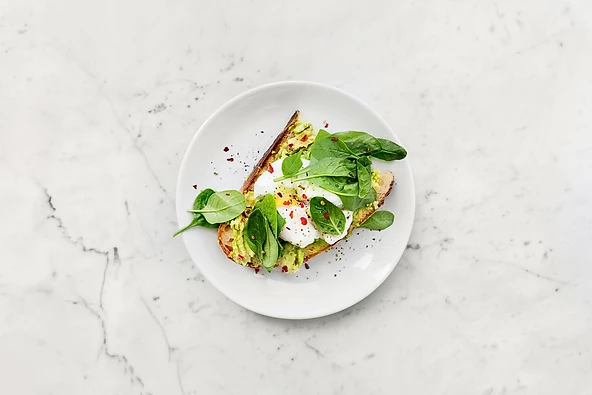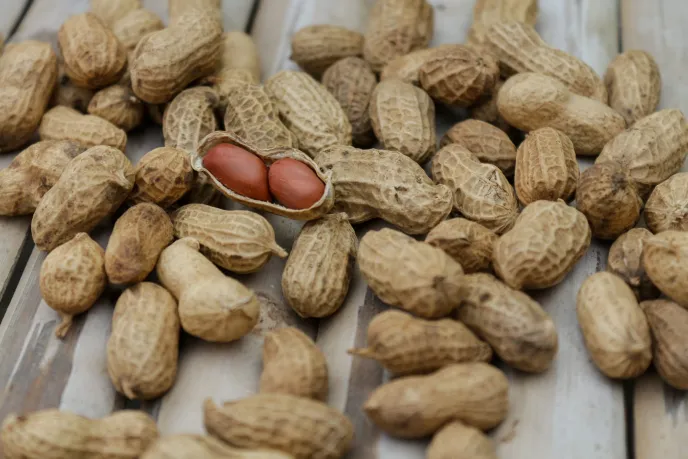Questions about the body’s metabolism are often so complex to answer in a simple way because there are THIS many pathways and reactions that occur in our human body to keep us alive and forms that term “metabolism”.
WHOAH! Major flashbacks to the trauma of biochemistry.
Let’s use an analogy: That mess of lines is your body’s car engine, and this is the processes it requires to convert “fuel” (food, drinks and stored energy in the body as fat & muscle) through combustion and a number of other processes to get the car (your body) to move forward, backwards or just idle. FYI: food is more than fuel, but it’s just a simple analogy to get your head around a complex topic!
I’m going to keep it simple and answer the most common questions that I get asked about metabolism, on the daily (literally).
Before we get started, I just want to lay the foundations of metabolism so you can see why people say “you cannot outrun a bad diet” or “nutrition is 70% of your results”.
Want to skip the science and get to the questions? Cool. Scroll down to “How do I boost my metabolism?”
Components of Energy Expenditure & Intake Metabolism
Energy Expenditure
(1) Basal Metabolic Rate (BMR) or Resting Metabolic Rate (RMR): 60-70%
The largest proportion of your energy expenditure is just your body at rest keeping you alive doing absolutely nothing (i.e. not fighting an infection, at rest but awake, in a thermoneutral environment without any emotional upset). Most people are surprised that the largest component of your energy expenditure or energy out equation is just your body doing its thang, and you really cannot do too much to change BMR (more on this soon).
(2) Thermic Effect of Food (TEF): 10-15%
This is the energy that is expended during the process of chewing (also known as masticating), digesting and turning food into energy in your body. Which is why you may feel warmer (or sometimes cooler) after you eat a meal. This is because the blood is moving towards your digestive system to get things churning.
(3) Physical Activity: 15%+
Physical activity is defined as any movement that involves skeletal muscle contraction that uses energy. So, lifting up your toddler, taking out the rubbish and cooking dinner all count as physical activity – not just your weight session at the gym. As you can see this makes a relatively small contribution to your overall energy output.
Energy Intake
(1) Food & Drink
I can’t give you an exact percentage as to how much Food & Drink contributes to your energy intake, as it depends on how much stored energy (as muscle and fat) you have to burn and the state your body is in as to whether it will choose to burn these as a source of fuel, and of course how much you consume!
But how does your body use this consumed energy? I’ve got the perfect diagram to show how your body channels the energy:

As you can see, the majority of the metabolisable energy is actually “wasted”, mostly in heat but also in TEF, leaving less than half to do what you need your body to do and to fuel your busy day! This is a result of the second law of thermodynamics which states that universe always favours “disorder”, which means that an accumulation of a large number of metabolic reactions each with a small inefficiency will accumulate to BIGGGGGG inefficiencies.
(2) Gut bugs at work!
See that 1-9% of non-digestible energy? It means non-digestible by HUMAN enzymes, but our friendly gut bugs turn this fibrous mass of leftover veggie bits, grainy stuff and legume mush into an energy source (called SCFAs or short chain fatty acids). These contribute up to 10% of you body’s energy needs. So keep your bugs fed with a steady supply of dietary fibre and resistant starch or “prebiotics”.

(3) Stored “Energy” (Muscles & Fat)
Depending on a number of factors, your body will use stored energy when energy available from food & drink is running low, your body will start to use the body’s stores to keep all these reactions firing to keep you alive, it’s a survival mechanism when the body is in starvation mode (defined as > 4 hrs without calorific food or drink).
How do I boost my metabolism?
Increase the number of cells you have (gain weight)
The more cells, the more reactions required to keep you alive, leading to a higher basal metabolic rate (BMR), not what you expected? Read on.
Harness the power of the metabolic workhorse – muscle!
Muscle mass, compared to fat mass, is more metabolically active. Building muscle via resistance training and dietary modification (appropriate for some people) can be an excellent way to boost your ability to use energy when you’re at rest.

Caffeine
Caffeine can increase your BMR slightly and temporarily. Doesn’t mean you need to go to town and drink your weight in cappuccinos to “boost your metabolic rate”, it’s just a nice fun fact if you already do consume caffeine!

Get younger
Hate to break it to you, but children aged 1-3 years have ridiculously high BMRs for their weight. This is because they need to grow, they need to keep these reactions firing AND build new things – neural connections, muscles, bones etc – there’s a lot of work to be done there!
Get Spicy!
Eating spicy foods, much like caffeine, can provide a temporary increase in metabolic rate, presumably as a result of the heat your body produces in response to the chilli, ginger or other mixed spices consumed.

What can contribute to a slow metabolism?
Low thyroid hormones (or hypothyroidism)
Thyroid hormones (T3 & T4, in particular) have critical roles to play in the entire body’s metabolic system. And whilst the amounts of these hormones in your body are so small to begin with, not having enough of this essential hormone can result in a lower resting energy expenditure and weight gain.
Low muscle mass
As before, having a higher fat mass relative to muscle mass will ultimately result in less metabolically active tissue meaning less energy being expended at rest. When fat mass gets above a certain level, dietitian actually account for this metabolic difference in our energy calculations to ensure we do not provide excessive energy to a relatively metabolically inactive tissue.
Ageing
Another one you cannot really control (sorry!) but yes, it’s true, the process of ageing, slowly reduces your BMR. The older you get the less energy that is being expended at rest. It becomes critical to eat nutritionally dense foods to ensure energy doesn’t creep up too high (leading to weight gain) whilst getting all the essential vitamins, minerals and macronutrients especially protein and calcium.
There’s a big focus on the preservation of muscle mass in the older population to try and reduce the decline in BMR with age as well as improve balance and reduce the risk of falls and fractures.

Not moving your body
Despite it’s small contribution, physical activity still contributes to our metabolism. If you’re bed ridden, no doubt your metabolic rate (overall) will decline, and your energy intake will have to be amended to adjust for that.
Not moving for a long period of time can also result in muscle mass loss which again reduces metabolic rate further!
Point is, get moving and don’t be afraid of a couple of dumbbells!
Why does that person eating junk food everyday not gain weight but if I smell hot chips I put on weight?
Oh boy – we all have that ONE friend who can just eat whatever and they stay the same. So, “is a ‘good’ metabolism hereditary?” Some people may simply burn more energy at rest than others. And there’s a number of genetically inherited mutations that can occur in the metabolic pathway including PKU (phenylketonuria) and MSUD (Maple Syrup Urine Disease), among others.
Just like everything in life, we’re all different and so our metabolic rates. However, it is important to still consume a nutritious diet even if poor dietary choices doesn’t lead to weight gain to ensure optimal function and to prevent the ” thin on outside, fat on inside” phenomenon, which describes the accumulation of the concerning visceral fat around the organs which can contribute to a number of co-morbidities.
Don’t stress too much about your metabolic rate. Eat well, move your body and include some focus on building muscle, and just work with what you’ve got!
Got questions about metabolism? Get in touch, or find me on Instagram or Facebook.






